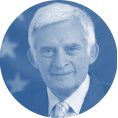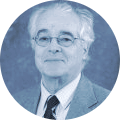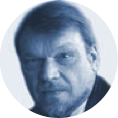The Advisory Board advises and influences the choices of the organization.
- Felipe González-Márquez, Former Prime Minister of Spain
- Michelangelo Baracchi Bonvicini, President of Atomium-EISMD
- Esko Aho, Senior Fellow Harvard University, Consultative Partner Nokia Corporation, Former Prime Minister of Finland (Helsinki, Finland)
- Professor Jerzy Buzek, Member of the European Parliament, Former President of the European Parliament, Former Prime Minister of Poland
- Bruno Le Maire, French Minister for the Economy and Finance, former Secretary General of Atomium-EISMD
- Prof. Carlo Rubbia, CERN, Nobel Laureate Physics
- José Sasportes, former Minister for Culture, Portugal;
- Claus Sørensen, Director General of the European Community Humanitarian Office, former Director General of DG Communication of the European Commission;

Felipe González Márquez
Chairman of the Board, Former Prime Minister of Spain
Behind his astute leadership skills and political acumen, Gonzalez was elected to an unprecedented four consecutive terms as Prime Minister of Spain. During his tenure in office, he pushed the nation into an era of economic growth it had not seen for over half a century, culminating in a successful integration into the European Union.
Felipe Gonzalez was born in Seville, Spain in 1942. While enrolled at the University of Seville in 1962, where he would eventually earn a degree in law, he joined the Spanish Socialists’ Party (PSOE), which had been an illegal organization since the Spanish Civil War had returned power to the Tradionalist Conservatives in 1939. Soon after his graduation, Gonzalez found success teaching law in Seville while also representing workers in litigation cases.
With the death of General Francisco Franco in 1975, the PSOE’s legality was restored and, behind the leadership of Felipe Gonzalez, assumed 118 (of 303) seats in Parliament and 29.2% of the vote in Spain’s first post-Franco general election. Once reinstated into the National government, Gonzalez pushed rid the PSOE of their Marxist doctrines to appeal to all classes. He succeeded in 1979, and was named the party’s Secretary General.
In the 1982 general election, the PSOE gained 48.3% of the vote and Felipe Gonzalez was named Prime Minister of Spain at the age of 40, making him Europe’s youngest Head of Government. He went on to hold the office through four more elections until the Popular Party commanded control in the 1996 general election. During this 16-year span, Gonzalez pushed for liberal reforms and a restructuring of the economy, which had been long stagnant under the guidance of the old regime. The economic conditions of Spain saw vast improvements under the guidance of Gonzalez, including a landmark inclusion within the European Economic Community, the predecessor of the European Union, in 1986.
Felipe Gonzalez was awarded the Charlemagne Prize for distinguished service on behalf of European Unification in 1993 and in 1997, and was honored with the Great Golden Cross for Merit by the Republic of Austria.
Gonzalez resigned as the leader of the PSOE in 1997, though he still remains involved in its processes. He currently heads the Madrid based Global Progress Foundation (FPG), and enjoys tending to bonsai trees, many of which he has donated to the Royal Botanic Gardens of Madrid.

Esko Aho
Senior Fellow Harvard University Consultative Partner Nokia Corporation Former Prime Minister of Finland (Helsinki, Finland)
As a Senior Fellow at the Mossavar-Rahmani Center for Business and Government at the John F. Kennedy School of Government at Harvard University Esko Aho pursues research on the changing role of the state in maintaining welfare and global competitiveness.
From 2009 to 2012, Mr Aho was the Executive Vice President of Corporate Relations and Responsibility at Nokia Corporation. In this position, he headed Nokia’s government and public affairs function, and oversaw the company’s global policies and activities regarding sustainable development and social responsibility. As of Sept 2012 Mr Aho has represented Nokia as a consultative partner.
Before joining Nokia in 2008, Mr. Aho enjoyed a long and distinguished career in government service. He served as a member of Finnish parliament for 20 years, from 1983. He was elected to the Prime Minister’s Office in 1991.
During his premiership, Mr. Aho chaired the Science and Technology Policy Council of Finland. Under his leadership, he also brought Finland into the European Union. After leaving office in 1995, Mr. Aho spent one year as a Fellow of the Institute of Politics at Harvard University in 2000, leading a weekly study group on the European Union and its political and economic implications for global relations. He then served as the president of Sitra, the Finnish Innovation Fund, from 2004-2008.

Jerzy Buzek
Member of the European Parliament Former President of the European Parliament Former Prime Minister of Poland
Jerzy Buzek, born on 3 July 1940 in Śmiłowice (Silesia region) in Poland. Prime Minister of Poland and Member of the Polish Parliament (Sejm) in the years 1997-2001. He guided Poland into the NATO structures in 1999. He initiated accession negotiations with the European Union in 1997. Founder of the “Foundation for the Family” in 1998 and the Institute of the Civil Society Pro Publico Bono in 2002. Member of The Independent and Self-Governing Trade Union “Solidarność” since 1980 and Chairman of the 1st National Congress of Delegates of “Solidarność” in 1981. He participated in secret regional and national structures of the Union. He chaired 4th, 5th and 6th “Solidarność” Convention after 1989. Head of the economic workgroup of the Solidarity Electoral Action (AWS) before the 1997 elections.
Professor. Studied at the Technical University of Silesia, Energy Engineering Faculty. In the years 1971-1972 – research grant at the University of Cambridge in the United Kingdom. Author of approx. 200 research papers and patents. Lectured at the Technical Universities of Silesia and Opole. Member of various academic and technical fellowships. Science Director at the Polish Academy of Science (PAN) in Gliwice until 1997. Representative of Poland at the International Energy Agency – Programme of Greenhouse Gas Effect in the years 1992-1997. Co-founder of Polish-German Science Network for Energy and Environment Protection INCREASE in 1997. Founder of the Consortium for Atmosphere Protection in Silesia in 1994. In the years 2002-2004 Vice-rector of the Polonia University in Częstochowa and founder of the Polonia School of Diplomacy. Doctor honoris causa of the Universities in Dortmund, Seoul and Isparta as well as Technical Universities of Opole and Silesia.
Member of the European Parliament since 2004. Vice-president of the European Energy Forum since 2004. Rapporteur for the Seventh Framework Programme for Research and Innovation as well as the rapporteur for the European Strategic Energy Technology Plan. He represented the European Parliament during the 2004 elections in Ukraine and supported the Orange Revolution. Holds “MEP of the Year for 2006 in the scientific research and technology category” title awarded by the Parliament Magazine. Prizewinner of “White Coal 2006” awarded by the Polish Engineers. In 2007 President Pöttering awarded him with the statuette of a pigeon funded on the occasion of 60th anniversary of adopting the Declaration of Human Rights. According to the “Wprost” and “Rzeczpospolita” rankings (2008) he was chosen the best Polish MEP.
On 14 July 2009, Jerzy Buzek was elected President of the European Parliament with 555 votes of the 644 valid votes cast, becoming the first President from the former Eastern Bloc to occupy this position. He held this position until 2012.

João Manuel Caraça
Director Calouste-Gulbenkian – Paris
Nasce em Portugal (1944).
Licenciado em Engenharia Electrotécnica, pelo Instituto Superior Técnico de Lisboa (1968).
Doutorado em Física Nuclear, pela Universidade de Oxford (1973).
Agregado em Física, pela Faculdade de Ciências da Universidade de Lisboa (1974).
Director do Serviço de Ciência da Fundação Calouste Gulbenkian e Professor Catedrático Convidado do Instituto Superior de Economia e Gestão da Universidade Técnica de Lisboa (ISEG), onde coordena o mestrado em Economia e Gestão de Ciência e Tecnologia.
Consultor para a Ciência, do ainda Presidente da República Jorge Sampaio, e Comendador da Ordem Militar de Sant’Iago da Espada.
Presidente da Comissão de Gestão da Junta de Energia Nuclear (JEN) (1975-1977).
Governador da Agência Internacional de Energia Atómica (1976-1977).
Autor de mais de uma centena de trabalhos científicos, sendo que os seus interesses se centram nas áreas da Política Científica e Tecnológica e da Prospectiva, e História do Pensamento e da Cultura.
Principais Publicações:
“Do Saber ao Fazer: Porquê Organizar a Ciência” (1993), Lisboa: Gradiva; “Ciência” (1997), Lisboa: Quimera; “Science et Comunication” (1999); “Entre a Ciência e a Consciência” (2002), Porto: Campo das Letras; “À Procura do Portugal Moderno” (2003), Porto: Campo das Letras.
Colaborou na redacção de “Limites à Competição” (1994), Lisboa: Fundação Calouste Gulbenkian e na organização de “O Futuro Tecnológico – Perspectivas para a Inovação em Portugal” (1999), Lisboa: Celta.

Bruno Le Maire
Former Minister of France for Agriculture
Bruno Le Maire was the French Minister of Food, Agriculture and Fishing from 2009 to 2012.
After graduating from the Ecole Normale Supérieure, he studied at Sciences Po, and then graduated from the National School of Administration.
He began working for the Ministry of Foreign Affairs as a career diplomat, and in 2002, he joined the cabinet of Minister as adviser to Dominique de Villepin. He joined the Ministry of the Interior in March 2004, and Matignon in 2005 when he became the Political Advisor to the Prime Minister.
In December 2008, Bruno Le Maire was appointed Secretary of State in charge of European Affairs in the François Fillon government, replacing Jean-Pierre Jouyet.
He was a member of the National Assembly of France from 2007 to 2008, where he represented the Eure department. Since March 2008, he is also a city councilman for the city of Evreux, Eure.

Günther Nonnenmacher
Member of the Editorial Board of Frankfurter Allgemeine Zeitung
Günther Nonnenmacher is one of the five chief editors of the leading German newspaper “Frankfurter Allgemeine Zeitung” (FAZ), the German newspaper with the highest circulation abroad and the European newspaper that maintains the largest number of foreign correspondents. At the same time, he is a honorary professor in politics and communication studies at the Department for Social Sciences and Philosophy of the University of Leipzig. Having been responsible for the foreign policy department at FAZ since 1986, he became chief editor in 1994.

Prof. Carlo Rubbia
Former Director of CERN, Nobel Laureate
Carlo Rubbia was born in Gorizia on 31st March 1934. He graduated in Physics at Scuola Normale of Pisa. In 1959 he obtained his PhD from Columbia University (USA).
Since 1961 he has been working at CERN (European Organization for Nuclear Research) in Geneva. In 1976, he suggested adapting CERN’s Super Proton Synchrotron (SPS) to collide protons and antiprotons in the same ring and the world’s first antiproton factory was built. The collider started running in 1981 and, in early 1983, an international team of more than 100 physicists headed by Rubbia and known as the UA1 Collaboration, detected the intermediate vector bosons.
In 1984 he was awarded the Nobel Prize for Physics. From 1972 to 1989 Carlo Rubbia has held the Higgins Professorship of Physics at Harvard University. He was the President of Sincrotrone Trieste – Synchrotron Light Radiation Source (1986 -1994), the company in charge of building ELETTRA, one of the first third-generation synchrotron radiation sources in the world, together with Berkeley and Grenoble.
During the 1990s Rubbia proposed the concept of an energy amplifier (ADS) – a novel and safe way of producing practically unlimited nuclear energy exploiting present-day accelerator technologies from natural thorium and depleted uranium. The energy resources potentially deriving from this technology, which is actively being studied worldwide, will be practically unlimited and non-proliferating.
During his term as President of ENEA, the Italian National Agency for New Technologies, Energy and the Environment (1999-2005), he developed a novel method for concentrating solar power at high temperatures for energy production, known as the Archimedes Project, which is presently being developed by industry for commercial use.
From 2005 to 2009 he was the principal Scientific Adviser of the Spanish Research Centre for Energy, Environment and Technology (CIEMAT), since 2007 he was a member of the high-level Advisory Group on Energy and Climate Change set up by EU’s President Barroso. In 2009 he was appointed Special Adviser for Energy to the Secretary General of ECLAC, the United Nations Economic Commission for Latin America and the Caribbean. Since June 2010 he is the Scientific Director of the Institute for Advanced Sustainability Studies (IASS e.V.) in Potsdam.
Carlo Rubbia has received numerous honours, amongst which, the Italian “Cavaliere di Gran Croce” in 1985, the French “Officier de la Légion d’Honneur” in 1989 and the Polish Order of Merit in 1993. He is a member of numerous academies and holds 30 honorary degrees. He is the author of more than 500 scientific papers.

José Sasportes
Former Minister for Culture, Portugal
Writer and dance historian. Former Minister of Culture, Portugal.
President of First World Conference on Arts Education. Former President of Portuguese Unesco National Commission.
Former director of ACARTE – Department of Arts Education and Contemporary Performing Arts, Calouste Gulbenkian Foundation, Lisbon

Claus Sørensen
Director General of the European Community Humanitarian Office, former Director General of DG Communication of the European Commission
Claus Sørensen is Director-General of the Directorate-General Humanitarian Aid and Civil Protection (ECHO)
From 2006 to 2011 he was Director-General of DG Communication (COMM former PRESS). Main Duties: Commission and Interinstitutional “Corporate Communication”, Managing 1200 staff.
November 2004 – January 2006: Head of Cabinet – Cabinet Fischer Boel, Agriculture and Rural Development. Main Duties: Sugar Reform, Wine Reform, Rural Development, Biofuels, State Aid Reform, WTO negotiations.
2003 – 2004: Director – Directorate-General Environment (ENV). Main Duties: Alliance Building USA/China/India/Brazil/Indonesia/Russia, Global Environmental Governance, WTO: Trade & Environment, Multilateral Environmental Agreements, CBD/Cartagena/GMO’s, Enlargement,
UNEP/CSD, UNDP, World Bank.
1999 – 2003: Head of Cabinet – Cabinet Nielson, Development, ECHO, AIDCO. Main Duties: Elimination of restant a liquider (RAL), Financial Monitoring (€4 billion/year), Unifying and refocusing Development Policy, ECHO de facto Management (10 months), Crisis management in Africa, Country Strategies, Overhaul of RELEX Services and deconcentration.
1999 – 1999: Head of Unit, DG Environment, International Affairs, Trade and Environment. Main Duties: Multilateral Environmental Agreements, International Environmental Law, Environmental Governance, Trade and Environment, Committee for Sustainable Development (N.Y.)
1995 – 1999: Member of Cabinet – Cabinet Gradin, Justice and Home Affairs, Fight against Fraud. Main duties: Fight against Fraud, Organised Crime, Corruption, Third Pillar issues, Enlargement, Social and Labour Market Policy, IGC – 96, Agriculture, Trade Policy, Veterinary & Health, Fisheries, Numerous speeches/Round tables, etc. on the Amsterdam Treaty and European issues, Training of Swedish officials.
1990 – 1994: Member of Cabinet – Cabinet Christophersen, Economic and Financial Affairs. Main Duties: Foreign relations, Trade Policy, Enlargement, Credit and Investment, Financial Institutions, International economic affairs, EIB, Environment, Internal Market, Social and Labour Market Policy.
